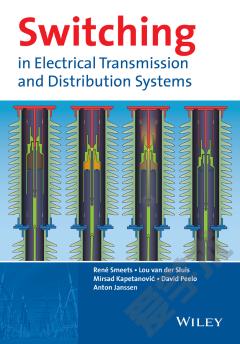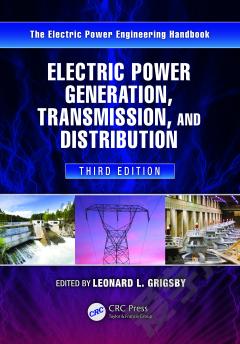Switching in Electrical Transmission and Distribution Systems
Switching in Electrical Transmission and Distribution Systems presents the issues and technological solutions associated with switching in power systems, from medium to ultra-high voltage. The book systematically discusses the electrical aspects of switching, details the way load and fault currents are interrupted, the impact of fault currents, and compares switching equipment in particular circuit-breakers. The authors also explain all examples of practical switching phenomena by examining real measurements from switching tests. Other highlights include: up to date commentary on new developments in transmission and distribution technology such as ultra-high voltage systems, vacuum switchgear for high-voltage, generator circuit-breakers, distributed generation, DC-interruption, aspects of cable systems, disconnector switching, very fast transients, and circuit-breaker reliability studies. Key features: Summarises the issues and technological solutions associated with the switching of currents in transmission and distribution systems. Introduces and explains recent developments such as vacuum switchgear for transmission systems, SF6 environmental consequences and alternatives, and circuit-breaker testing. Provides practical guidance on how to deal with unacceptable switching transients. Details the worldwide IEC (International Electrotechnical Commission) standards on switching equipment, illustrating current circuit-breaker applications. Features many figures and tables originating from full-power tests and established training courses, or from measurements in real networks. Focuses on practical and application issues relevant to practicing engineers. Essential reading for electrical engineers, utility engineers, power system application engineers, consultants and power systems asset managers, postgraduates and final year power system undergraduates.
{{comment.content}}








 京公网安备 11010802027623号
京公网安备 11010802027623号